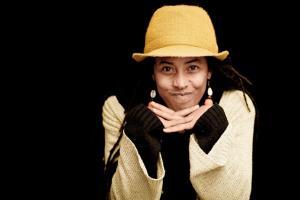Ahead of her talk at Goa, Bob Marley's granddaughter Donisha Prendergast discusses his legacy, and on spreading the Rastafari way of life

Along the way, she encountered Rastafarian elders, musicians, poets, professors and individuals who shared personal stories of the influence of Donisha's iconic grandfather, Bob Marley, on their lives. Next weekend, she will be talking about the same at Goa Sunsplash 2019, India's biggest reggae festival, which this year, aims to offer a holistic lifestyle and cultural experience that reflects the reggae ethos.
"It was a deeply personal and spiritual experience making the documentary. But I feel that was the tip of the iceberg. More needs to be done about this way of life. For example, I found out that reggae music is most popular in Israel, not just because of the community being there, but because the sentiment in the music that resonates with the people of that nation," she says.
Rastafari believes in the resistance of oppression, and pride in African heritage, and usually includes ritual use of marijuana, avoidance of alcohol, dreadlocks, and vegetarianism. But Prendergast says she never grew up wearing dreadlocks. "My parents were conscious about the fight that we would experience as dreadlocked children in Jamaica of the'80s and '90s. My grandfather's music may have been loved, but the Rastafari movement that he represented was not palatable for the government of the Jamaica. There were too many empowered sentiments of anti-establishment. Still, as I approached 18, I made the decision to immerse myself in the movement." Prendergast says Rastafari has, in many ways, played a great role in her understanding of "this physical world we live in, the spiritual world that exists around us, and how to navigate joy and blues of humanity with a positive and empowered attitude".
Right now, as she tours India on a mission to spread the word of Rastafari, she says she already feels connected to the country. "When I was here last in 2008, I had seen the sadhus next to the Ganges, smoking ganja, and that was such a surreal experience. I knew then how Rasta connects to India in many ways." She is also still optimistic about the effect her grandfather's music had on the world, music that spoke of being a free individual, be it physically, mentally or emotionally. So, she often refers to him as a "freedom fighter".
"Bob Marley's music is now primarily used for entertainment and tourism, but it was never meant for languid consumption. In almost every song he wrote, he made a call to action towards some kind of freedom. He was always clear that warfare is a part of the human experience. He sang from the perspective of the oppressed. His revolution was through music."
Catch up on all the latest Mumbai news, crime news, current affairs, and also a complete guide on Mumbai from food to things to do and events across the city here. Also download the new mid-day Android and iOS apps to get latest updates
 Subscribe today by clicking the link and stay updated with the latest news!" Click here!
Subscribe today by clicking the link and stay updated with the latest news!" Click here!







_d.png)



